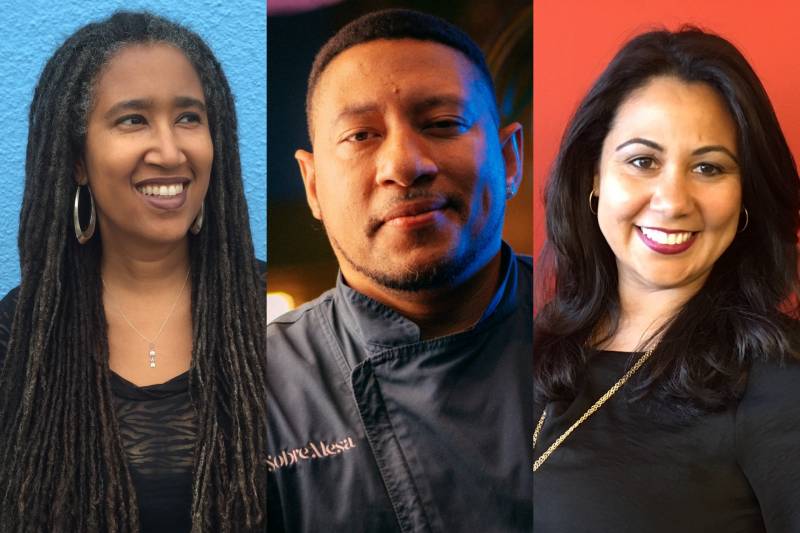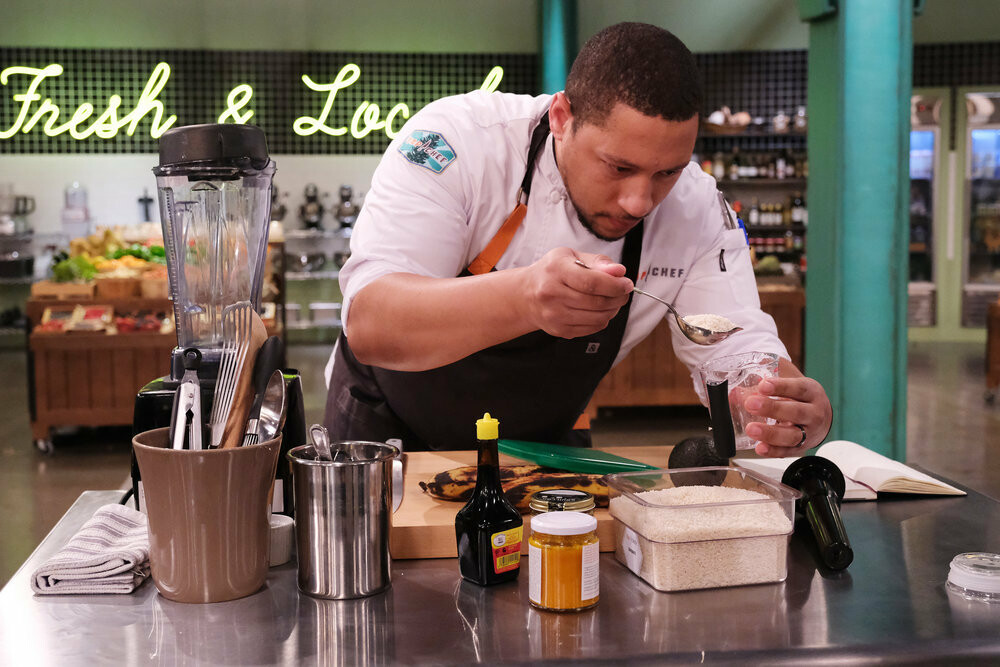It wasn’t until she left California for Boston to attend Harvard College that she encountered a significant Afro Latino population.
“When I was a kid and could pronounce things in Spanish, Latino folks, particularly Mexican American folks, were sort of shocked,” de Leon said. “Being in the Northeast, I was like, ‘Oh, wow, look at this — these are Black people speaking Spanish to each other, and nobody's, like, taking their picture. It's not like an unusual thing.’”
Still, the idea of who could be Black in America seemed exclusionary to de Leon.
“When I grew up, there was this sense that Blackness, with a capital B, was the kind of culture that came out of the U.S. South from African folks who had gone through a slavery experience,” she said. “There was no room to be a different kind of Black.”
German, the chef in Oakland, was born and raised in Washington Heights, a predominantly Dominican neighborhood in New York City. His parents, grandparents and extended family members insisted they were “Dominicanos” or “Latinos,” and avoided terms that acknowledged their Blackness and African descent.
Early in his career, he gravitated toward Italian, Spanish and French cuisine because he thought cooking the Dominican food he grew up eating would prevent him from attaining prestige or success. The restaurant industry, he said, tends to marginalize food from Latin America as greasy, cheap and lacking sophistication.
German, who moved to Oakland with his wife in 2010, slowly began adding Dominican dishes to alaMar’s menu. He subsequently opened SobreMesa, an Afro Latino restaurant in downtown Oakland in 2020, the same year he also showcased his Dominican cuisine as a contestant on Bravo’s “Top Chef.”


